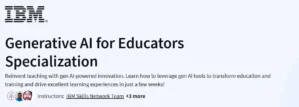What will you Level 1 Intelligence Analyst Certification Course
- Apply critical thinking skills throughout the analytic process.
- Identify and mitigate biases to reveal unstated assumptions.
- Refine and clarify intelligence questions.
- Conduct research to identify existing data and gather new evidence.
- Select and apply appropriate analytic techniques.
- Reevaluate and revalidate previous analytic conclusions.
Program Overview
Critical Thinking and Avoiding Bias
⏳ 15 minutes
- This module introduces the importance of critical thinking in intelligence analysis and how to identify and avoid common biases that can affect analysis.
Basic Vocabulary and Phrases
⏳ 1 hour
- Thinking about thinking I; critical thinking.
- Thinking about thinking II; logical probable and plausible reasoning.
- Analytic pitfalls.
- Insights into problem solving.
Intelligence Research and Collection
⏳ 13 minutes
Gathering the evidence.
Evaluating the evidence.
Intelligence Analysis
⏳ 1 hour
Selecting the right technique.
Realizing the power of analytics: arming the human mind.
Sorting chronologies and timelines.
Conclusion
⏳ 15 minutes
- Argument evaluation and reevaluation.
- Final certification exam.
- Bonus lecture.
Get certificate
Job Outlook
- Intelligence analysts are in demand across various sectors, including government agencies, law enforcement, and private security firms.
- Proficiency in critical thinking and analytical techniques enhances employability and career advancement.
- Freelance opportunities include consulting, data analysis, and intelligence reporting.
Specification: Level 1 Intelligence Analyst Certification
|
FAQs
- No, the course is open to anyone interested in intelligence analysis.
- Prior experience in security, law enforcement, or military is not required.
- Students from criminology, political science, or international relations also benefit.
- Beginners can use it as a stepping stone into the intelligence field.
- Practical skills are taught in a way accessible to all learners.
- Corporate security and risk management roles.
- Cybersecurity and threat intelligence teams.
- Private investigation and compliance firms.
- International NGOs and geopolitical research.
- Consulting firms focusing on security and risk.
- The focus is more on frameworks and analytical methods.
- Basic exposure to open-source intelligence (OSINT) is included.
- Emphasis is on structured analytical techniques rather than heavy tools.
- Technical skills can be developed in later certifications.
- Ideal for building a foundation before tool-specific training.
- Yes, it demonstrates foundational skills in intelligence analysis.
- Shows employers commitment to structured training.
- Useful for entry-level or support roles in intelligence agencies.
- Must usually be combined with additional clearances or degrees.
- Acts as a supplement, not a direct pathway, to government jobs.
- Teaches methods to question assumptions and spot biases.
- Strengthens logical reasoning in complex problem scenarios.
- Encourages structured approaches to uncertain situations.
- Helps in analyzing incomplete or conflicting data.
- Builds confidence in decision-making under pressure.





